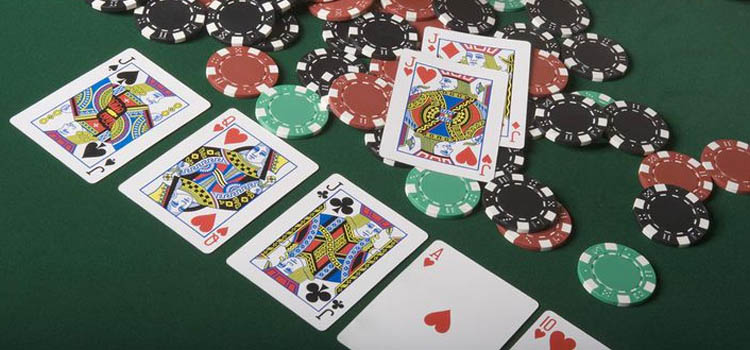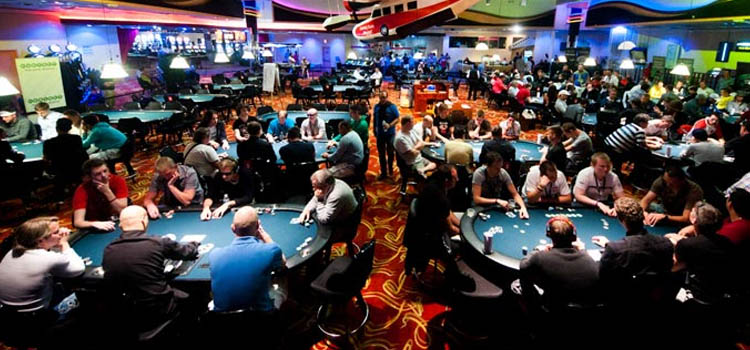
3 TIPS ON HOW TO CHOOSE THE BEST ONLINE CASINO?
Since I could only answer this question for each individual after an interview, this article provides comprehensive advice to help you compare the many online casinos available. This way you can find the site that suits you best, even without individual advice.
Tip #1: Compare the online casino game offerings - Slots, Roulette, Blackjack and more
Before you register anywhere, you should determine for yourself what type of player you are. Would you rather play slot machines or hit a jackpot? Then you should compare online casinos according to this criterion. At topratedcasinosites.co.uk they claim that they have the best list of online casinos in the UK. A little tip: Casinos that work with the publisher Microgaming usually have a large selection of slot machines. This developer is also something for all film and comic book fans, as he has many blockbuster and Marvel slot machines on offer.
However, Microgaming's slots are not as sophisticated and modern as those of other developers, such as NetEnt or Green Tube. In the software versions of Roulette, Black Jack, Baccarat, Video Poker and the like, however, the individual developers are similar. Also the video streams for Live Roulette, Live Black Jack, Live Baccarat and so on are of high quality by the bank. Only the number of game versions and streams varies depending on the online casino.
Tip #2: Special services for Gamblers - Bonus, Free Spins and Loyalty Points
On special landing pages or even on the start page, the individual casinos already indicate their bonus for new customers. With nearly all offerers thereby a medium-large to very high bonus amount is promised as a percentage value of the first deposit(s). However there are also offerers like the 888 Casino or the 777 Casino, which new customers grant a bonus also without deposit; this lies however always under 100 euro. Free spins for slot machines are also often added. In addition, there are loyalty points, usually called Comp Points, which can be exchanged back into a financial value. The exact conditions can be found on the casino pages or in the corresponding experience reports.
View More
Basic strategies to play poker
Sure from the first time you played poker you saw that you don't get anywhere in this game without a strategy. Having it not only brings us closer to higher profits, but even to keep us inside the game.
You may also have noticed that there is no single path to take. A player can use several strategies in the same game. In this article we bring you the most basic ones to help you improve your level of play and, of course, to win.
Reviewing the basics
Before we get into more complex concepts, let's remember a basic strategy: to become as familiar as possible with the basic rules of poker. It sounds obvious, but mastering the game can save you a lot of money in the future.
On the other hand, the basis of poker is that everything focuses on decisions. Play your best in every game, without thinking that you must win at all costs, otherwise you could end up retiring sooner than expected.
An example of the power of decisions is the influence that you as a player can have on the decisions of your opponents. It may not be one of the most stable strategies, but the bluff exists for a reason: to affect the performance of others and make a profit from it.
Another simple technique to implement: be patient. Professional players differ from amateurs in that they know how to stay cool-headed during a game, even if the cards aren't the best. Most hands in Texas Hold'em will be weak, keep that in mind.
Winning tactics in poker
After reviewing some basic maneuvers, we'll now give you some simple poker strategies to implement that will help you master your game:
Basic Strategy 1: Thinking about your position
In poker, the order in which players act is already established for each round. In this sense, the player who is last is the one who has the most information, so he can make a more considered decision about how to proceed in the game.
Also, the person to the dealer's right, the bouton, potentially has more power than the dealer himself, as he can raise the bet and take it out of the game.
If you are in one of the top positions on the table, try to be more selective with the hands you play. On the contrary, if you are in the last positions, you will have a certain advantage when it comes to acting.
Basic strategy 2: evaluate the best hand on the table.
To find out if someone has the best hand, pay attention to the number of players at the table and the previous move. If you see the bets increase, it could mean that one of your opponents thinks he has the best hand.
If, on the other hand, you're the one with the best hand, it's all a matter of recognizing it. Having it and not knowing how to do it will cause you to lose valuable betting opportunities. The opposite scenario can be worse, that you don't know how to read your cards well and this costs you dearly.
Therefore, pay close attention to what happens at the table, this will save you expensive decisions.
Basic strategy 3: calculate the Odds and Outs.
Entering a poker game without knowing how to do this calculation would be like driving blindfolded. You may be lucky in some rounds, but most likely you'll end up crashing.
What are they?
Odds are the odds of winning that a certain hand gives you.
Outs are the cards that haven't come out yet and have the potential to improve your hand.
Calculating the odds will allow you to determine when a hand is profitable and when it is not, and depending on it, withdraw or bet. Here's how to do it:
- Number of outs x 2: the probability of improving your hand with the next card.
- Number of outs x 4: the probability of improving your hand on the turn and/or river.
If you have a flush with 9 outs, your chance of winning will be 18% of winning [9 x 2].
Basic Strategy 4: Know when to raise the bet
Now that you've done your evaluation of the poker table situation. You have several options, one of which is to raise. When?
If you think you have the best hand: bet big. This will scare weaker players into retiring, reduce competition and increase your odds.
If you have a regular hand and you don't need to see any more cards to win, increasing the bet can cause players who do need the flop to fold.
Bluff bet. If you don't have anything, but you think you can manipulate your opponents by making them think you do when you raise your bet, try it. It's a risk, but it can pay off. Even if you're caught, you can recover with the flop.
Bet on information. If you bet, the other players must raise it, go, or withdraw. This can give you the necessary data about the cards they hold in their hands.
View More
Strategies in 3-card poker
Like all other casino games, 3-card poker has some associated strategies to help you gain a tactical advantage over the dealer. Today we are going to look at two in particular that are the most known among 3-card poker lovers, and in essence, the strategies live at opposite ends of the spectrum.
One of them is the classic strategy used by most 3-card poker players and the other, the so-called "Flashing Dealer" or intermittent dealer, is a little more controversial in its design and requires certain factors to be in play before being used. Let's take a closer look at both strategies.
The basic strategy in 3-card poker
The basic strategy that has been adapted for 3-card poker is quite simple. In general terms it dictates that you always have to double the hand you have, if you have less than Q, 6,4 Debers continue betting.
In order to decide quickly whether or not you should play, as a general rule, if your first card is equal to or stronger than a 6 you must continue regardless of the value of the third and last card. The reason is because you only look at your first two cards is because the hands are scored and ranked on the highest card and then the second highest if there is a tie. It is very rare to have to go to a third card to tie and decide a winner.
The reasoning behind this strategy is based on math, i.e. the amount you can expect to lose by folding. Q, 6 4 is the lowest hand to play simply because if you raise at nothing lower you can expect to lose more than 1 unit per fold. If you raise at Q, 6.4, you can expect to lose less than 1 unit. The most important thing is to have fun while playing 3-Card Poker.
The Intermittent Distributor Strategy
A little less conventional in 3-card poker is the strategy called "Flashing Dealer" or the intermittence of the dealer. Literally it is a strategy that is based on whether or not you are getting a view of one of the dealer's cards.
However, it is not uncommon to find a dealer of 3 poker cards who exposes one of his poker cards, due to the height and position of the dealer. Right-handed dealers tend to take the cards from the side that has the most potential to expose the lower card, just as they are placed on the table. The best seating position for this type of strategy is the first position to the left of the dealer, better known as "First Base.
Now all that's left to know is how all that helps, right? If you can clearly determine the dealer's range of cards, then there is a list of games you can use depending on which of the cards dealt by the dealer or croupier you have been able to get a glimpse of. The following points you will find below describe the appropriate action to take depending on the card exposed.
- Cards with a value from 2 to one Jack = always raise
- Queen= Only lift with a Q, 9,2
- King= Only come up with a K, 9, 2
- As= Only lift with A, 9, 2
If all you could see is that the dealer has a "face card" (black cards J, Q and K), then you should only consider going up if he has a Q, J, 5 or higher. If this one is able to say that the distributor does not have a face card then you must increase, independently of if these or not sure if they have an Ace, because statistically speaking, most of the times they do not have it.
View More
Advanced Tournaments Strategies
In poker it is vital to know that playing with people is much more important than playing with cards. This means making your opponents believe the cards you might have, and making a good reading of what they have. No-Limit Hold'em is not really about the cards you have, but about the cards your opponents think you have. And of course, it's poker's number one skill: being able to correctly put your opponent in a hand. Unlike average players, good players can recognize when their opponents have a weak hand and take the pot right there. That's why they're so good.
Initial stages of a tournament
When you start a tournament, it's best not to be too active and aggressive because the blinds aren't very big at first. Winning those small blinds isn't going to help you much. What will help is to sit back, wait, and watch your opponents to see how they play. At this stage, worry about knowing the dynamics of the game in the first place. It's also important to know how long it will be before the table is broken. If yours is the first, you'll have to have a different strategy than if you expected to play the same players all day.
At this stage, most players play tight. When you start getting to know your opponents well after a few levels, if they're not playing too fast, you can occasionally be aggressive, win jackpots, and start accumulating chips.
Intermediate stages
As the blinds increase (and certainly, when you start laying earlier), you need to become more aggressive. Usually around the third or fourth level, you should start being more active. At this stage, there are more chips to win at the table, so you have more reasons to play aggressively.
Final stages
Just before the collections and just before the final table, the best players take a tremendous advantage of the situation. In the WPT, because television of the final table begins when there are six left, the pro's can do a lot of damage and win a lot of chips when there are nine players left. When they reach the final table of nine, everyone wants to appear on TV. The best raise constantly to build big stacks so that when they reach the last six, they have a lot of chips and a great chance of winning.
I have seen many cases where I had no doubt that someone won because they became aggressive when they were approaching collections. An example that comes to mind happened during the main event of the 1992 World Series of Poker. I was sitting next to Hamid Dastmalchi, who eventually won the tournament. Coming up on charges, he had about $60,000 in chips. There were 37 players left and it was the first time they awarded 36 places. They were playing hand-to-hand and most players threw their cards waiting for someone to be eliminated. No one wanted to play a well. I would bet that never in the history of poker was there a tournament where the bubble had been so long.
It took a couple of hours until one was eliminated. Dastmalchi simply began to raisear each well. He noticed that no one was playing. I was one of the culprits because I wasn't doing it either. Hamid increased his stack from $60,000 to $160,000 before we finally reached 36 players. That gave him enough chips to advance and win the tournament.
All of the Poker tournaments are regulated by authorities like Gambling Commission
If you want to win, play to win
It is important to know that the percentage of times a good player gets paid is determined by the way he or she plays. If you're just trying to get in-the-money instead of winning, it's a lot easier to do.
If you're playing to win, you're more likely to be eliminated early, but you'll have a much better chance of winning in the long run. You can't be afraid to play jackpots in the early stages of a tournament if you want to win. You have to accumulate chips so that in case you get to the final table, you do it as one of the leaders.
Most of them have the mentality that they have to get to collections first. I used to think that the priority in tournaments was to survive. I had that mentality for many years because, when you put money in to play, your first goal is to get that money back. Then it's a freeroll for the big bills. That's the way you think if you're a player trying to survive by playing the tournament circuit. You know you have to get paid an X number of times a year to survive; otherwise, you're not going to make it. Your bankroll won't take it. Today I don't think this approach is very smart when it comes to winning.
View More


